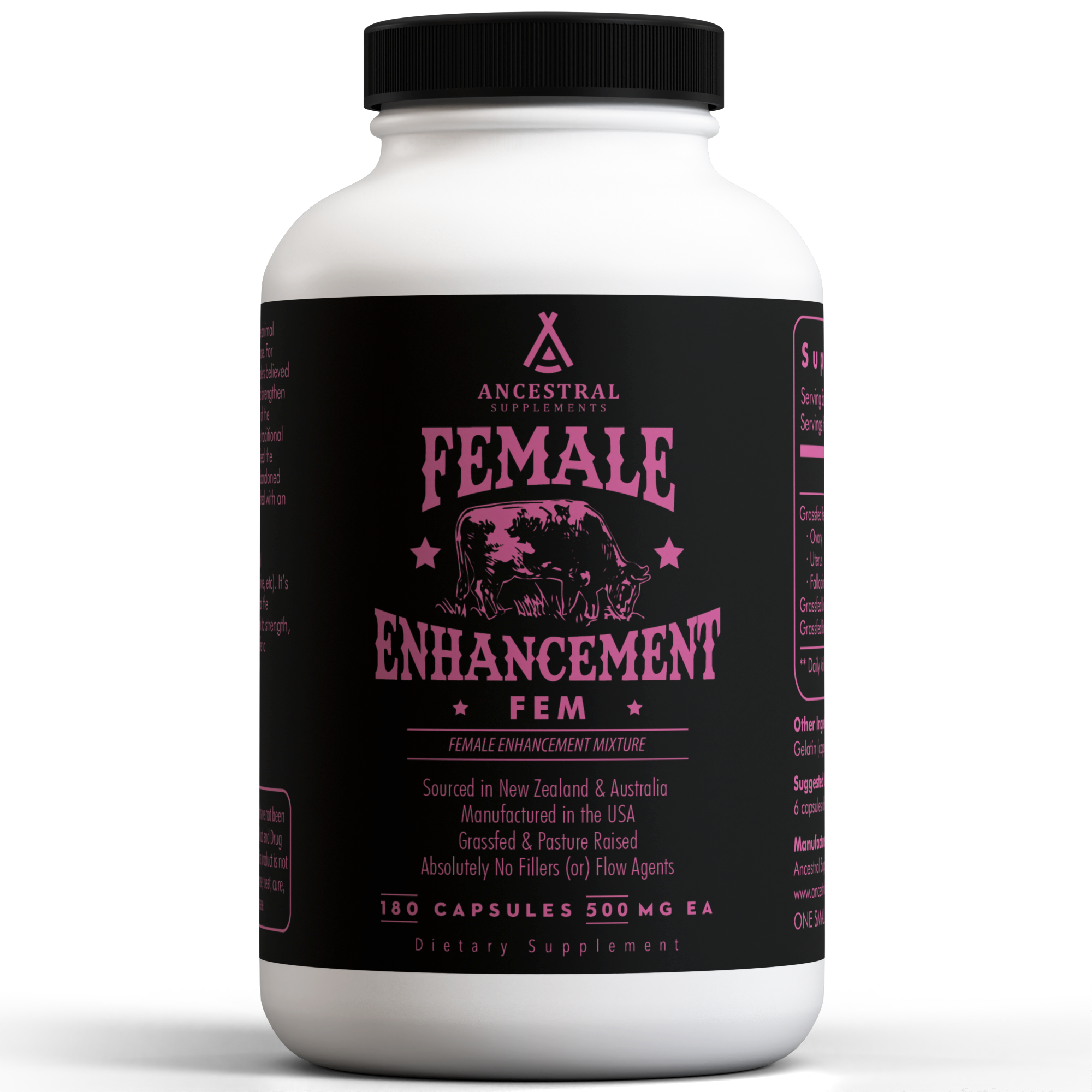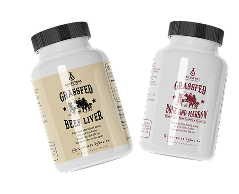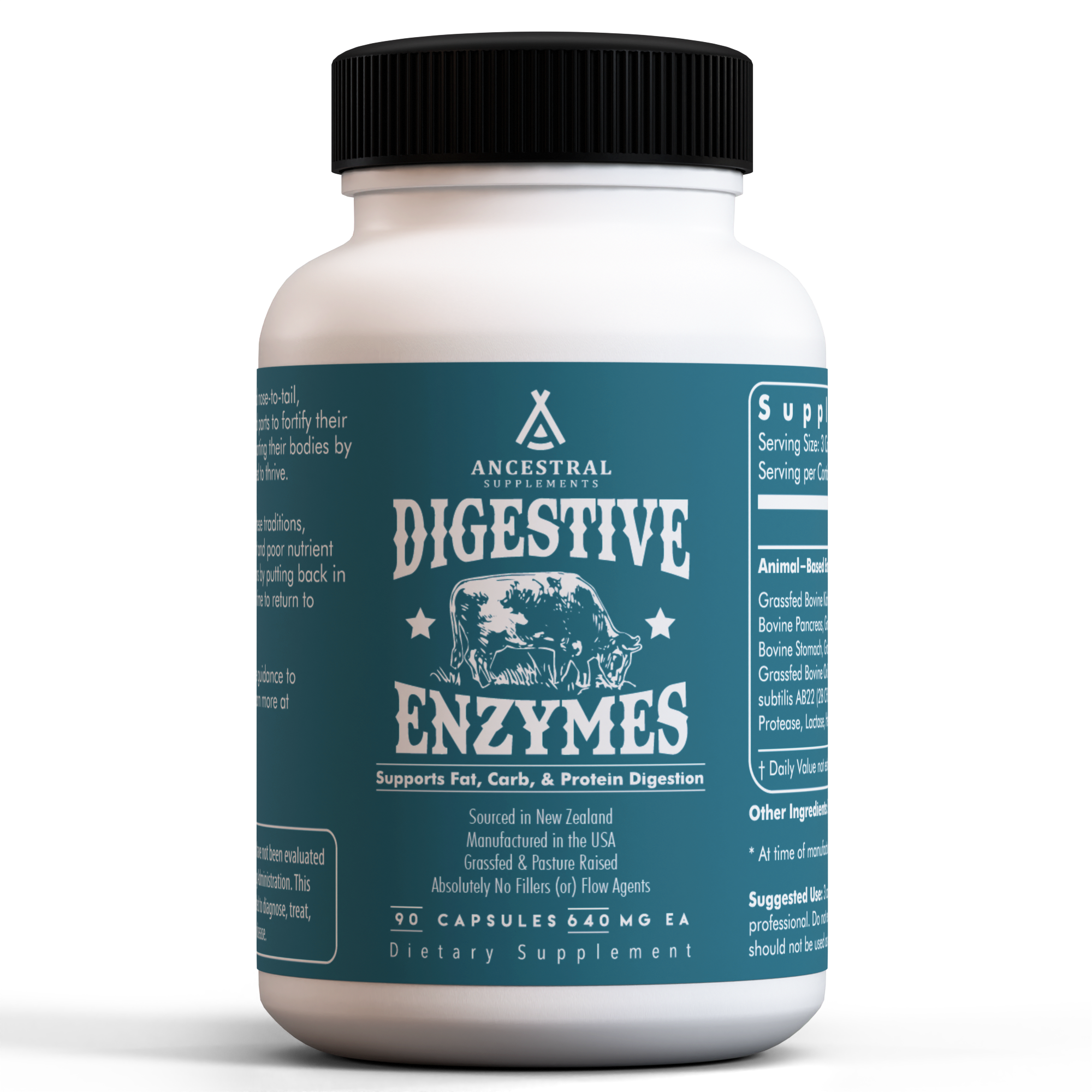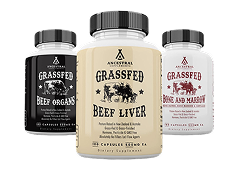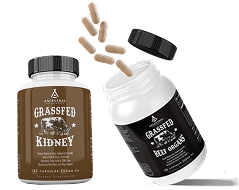Skincare Myth: Why Expensive Creams Aren't the Key to Glowing Skin

Here's a truth that might shock you more than the price tag on that $100 vitamin C serum: Expensive skincare products aren’t the key to that radiant, healthy skin you're after.
The global skincare industry rakes in over $115 billion annually by selling us the promise that perfect skin comes in a jar. (1) We've been conditioned to believe that if we just find the right combination of serums, creams, and treatments, we'll unlock the secret to flawless skin. But what if we told you that this entire premise is fundamentally flawed?
The truth is, genuine skin health comes from within, not from slathering expensive chemicals on your face. Let's bust this myth once and for all.
The Problem with Conventional Skincare Products
1. The Price Tag Doesn't Equal Results
Walk into any high-end cosmetics or department store, and you'll be bombarded with products promising miraculous transformations. The higher the price, the more exclusive and effective it must be, right? Wrong.
Most expensive skincare products don't necessarily deliver superior results compared to their drugstore counterparts. According to dermatologists, the difference between an affordable moisturizer and an expensive one often comes down to "marketing, packaging, and possibly proprietary ingredients." (2) Marketing is often "far and away the biggest expense overall" for skincare companies, and well-marketed products can succeed "even if they are not objectively of great efficacy." (3)
The placebo effect plays a huge role here too. When you spend $300 on a face cream, you desperately want it to work, so you might convince yourself you see improvements that aren't actually there. Meanwhile, your skin's real needs go unaddressed.
2. Harsh Chemicals Hide in "Premium" Products
Here's where things get really concerning. Many high-end skincare products are loaded with harsh chemicals that can actually damage your skin over time. The irony? You're paying premium prices to potentially harm your skin barrier.
Common toxic ingredients lurking in expensive products include:
Parabens and Sulfates: Research shows that parabens can act as endocrine disruptors by mimicking estrogen in the body, while sulfates can strip away natural oils and disrupt the skin's natural barrier function. (4) Studies have linked sulfates and potent preservatives to potential disruption of the skin microbiome, which can harm beneficial bacteria while targeting harmful ones. (5)
Synthetic Fragrances: The fragrance industry uses thousands of fragrance chemicals, with formulations often protected as trade secrets, allowing manufacturers to include hundreds of untested chemicals under the single term "fragrance." Research has found that fragrance products can contain endocrine-disrupting chemicals like phthalates that may interfere with hormone function. (6)
Harsh Acids and Retinoids: While these can provide benefits when used appropriately, overuse can lead to skin barrier damage and increased sensitivity.
Petroleum-Based Ingredients: These can create an occlusive barrier that may interfere with normal skin function in some individuals.
The skincare industry has convinced us that we need to "treat" our skin aggressively, but this approach often creates more problems than it solves. Your skin isn't a problem to be fixed with harsh chemicals — it's a reflection of your internal health.
Your Skin As the Ultimate Reflection of Internal Health
Your skin isn't just a pretty wrapping for your body — it's a complex, living organ that reflects what's happening inside you. Think of it as your body's report card, showing up every day to tell you how well you're nourishing and caring for yourself.
The connection between internal health and skin appearance isn't just folklore — it's backed by solid science. The gut-skin axis demonstrates a bidirectional relationship where gut microbiota dysbiosis plays a particular role in the pathophysiology of multiple inflammatory skin diseases. (7) When your gut microbiome is imbalanced, it can decrease the abundance of beneficial short-chain fatty acids, which may increase intestinal permeability and contribute to conditions like atopic dermatitis by triggering inflammatory responses. (8)
Similarly, chronic inflammation from poor diet, stress, or toxin exposure manifests as redness, breakouts, premature aging, and uneven skin tone. No amount of expensive cream can fix inflammation that's happening at the cellular level.
Internal Factors That Affect Skin Health
Nutrient Deficiencies: Your skin cells are among the fastest-regenerating in your body, which means they need a constant supply of nutrients to function properly. Deficiencies in essential fatty acids show up as dry, flaky skin. (9) Low vitamin C leads to poor collagen production and slow wound healing. Insufficient zinc manifests as acne and delayed healing.
Hormonal Imbalances: Fluctuating hormones don't just affect teenagers. Adult hormonal acne, melasma, and other skin issues are direct results of internal imbalances that can't be corrected with topical treatments alone.
Stress and Sleep: Chronic stress elevates cortisol, which activates cascades in the skin through the hypothalamic-pituitary-adrenal axis. This leads to increased oil production, inflammation, and accelerated aging. (10) Studies show that elevated cortisol can suppress immune response in the skin, reduce its ability to combat pathogens and heal wounds, and trigger inflammatory responses that contribute to acne development. (11, 12) Poor sleep disrupts your skin's natural repair processes, leaving you with a dull, tired complexion.
Hydration and Circulation: Dehydrated skin looks exactly like what it is: cells that aren't getting enough water. Poor circulation means nutrients aren't reaching your skin cells efficiently, and toxins aren't being removed properly.
The Inside-Out Approach to Healthy Skin
Essential Nutrients for Skin Health
Real skin transformation happens when you give your body the building blocks it needs to create healthy skin cells from the inside out.
Omega-3 Fatty Acids are perhaps the most crucial nutrients for skin health. These essential fats help control the inflammatory response, maintain skin barrier function, and keep skin supple and moisturized. Wild-caught fish, fish eggs, and grass-fed animal products are excellent sources.
Fat-Soluble Vitamins (A, D, E, K) work synergistically to support skin cell regeneration, help protect against oxidative damage, and maintain skin barrier function. (13, 14) These vitamins require healthy fats for absorption, which is why nutrient-dense animal products are so valuable.
Collagen-Supporting Nutrients like vitamin C, zinc, and glycine help your body produce its own collagen.
Antioxidants from colorful vegetables and fruits protect your skin cells from damage and support the natural repair processes that keep your skin looking youthful.
Simple, Natural External Care
While internal nutrition is the foundation, this doesn't mean external care is irrelevant. The key is simplicity and working with your skin's natural processes rather than against them.
Your skin has an incredible ability to regulate itself when you stop interfering with harsh chemicals. A gentle, minimal routine focusing on protection and hydration is often more effective than a 10-step regimen filled with active ingredients.
Natural alternatives like quality oils, gentle cleansers, and mineral-based sun protection respect your skin's natural barrier while providing the support it needs.
Practical Steps to Radiant Skin
-
Start with your plate: Focus on nutrient-dense whole foods, especially those rich in omega-3 fatty acids and fat-soluble vitamins. Wild-caught seafood, grass-fed meats, organ meats, and pastured eggs should be staples.
-
Eliminate inflammatory foods: Processed foods, refined sugars, and industrial seed oils create inflammation that shows up on your skin.
-
Support your gut health: A healthy microbiome is essential for nutrient absorption and reducing systemic inflammation.
-
Manage stress and prioritize sleep: These lifestyle factors have profound effects on your skin that no cream can counteract.
-
Simplify your external routine: Less is often more. Focus on gentle cleansing, adequate hydration, and sun protection.
-
Stay hydrated: Pure water is still the best beauty treatment available.
The Bottom Line
The skincare industry has sold us a lie: that healthy, radiant skin comes from expensive products filled with harsh chemicals. The truth is far simpler and more empowering. Your skin is a reflection of your internal health, and true skin transformation happens when you nourish your body from the inside out.
Stop chasing the next miracle serum and start giving your body the nutrients it needs to create healthy, beautiful skin naturally. Your skin — and your wallet — will thank you.
If you're ready to nourish your skin from within, our Clear Skin + Clear Mind bundle provides essential nutrients from Wild Caught Fish Eggs and Grass Fed Beef Tallow supplements that support both skin health and cognitive function the way nature intended.

